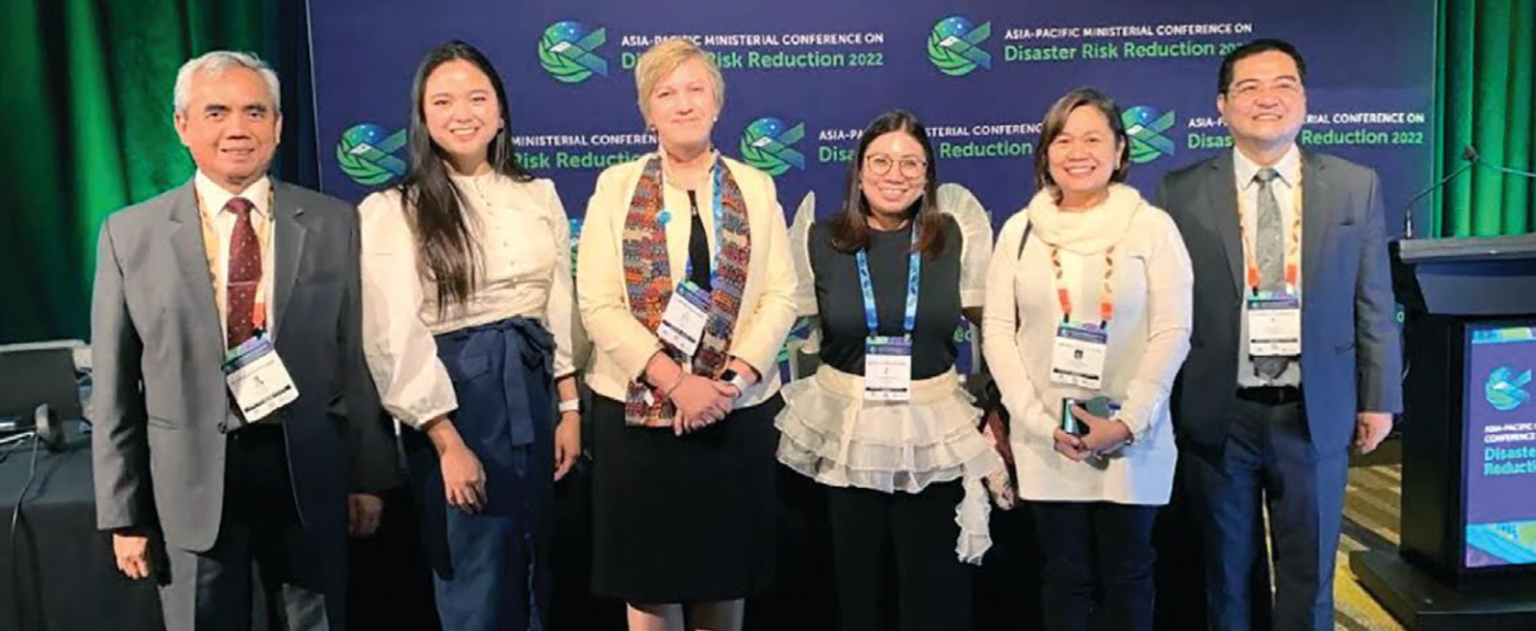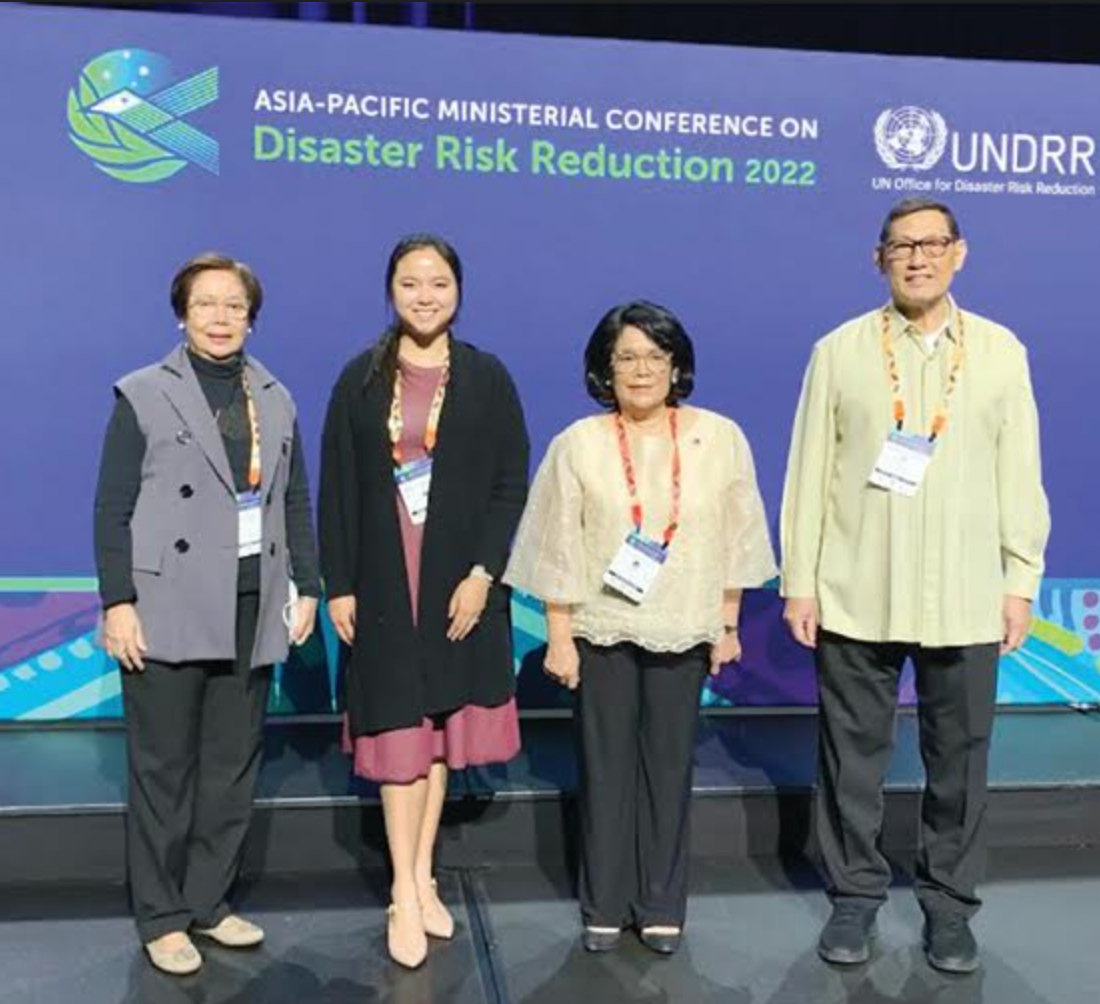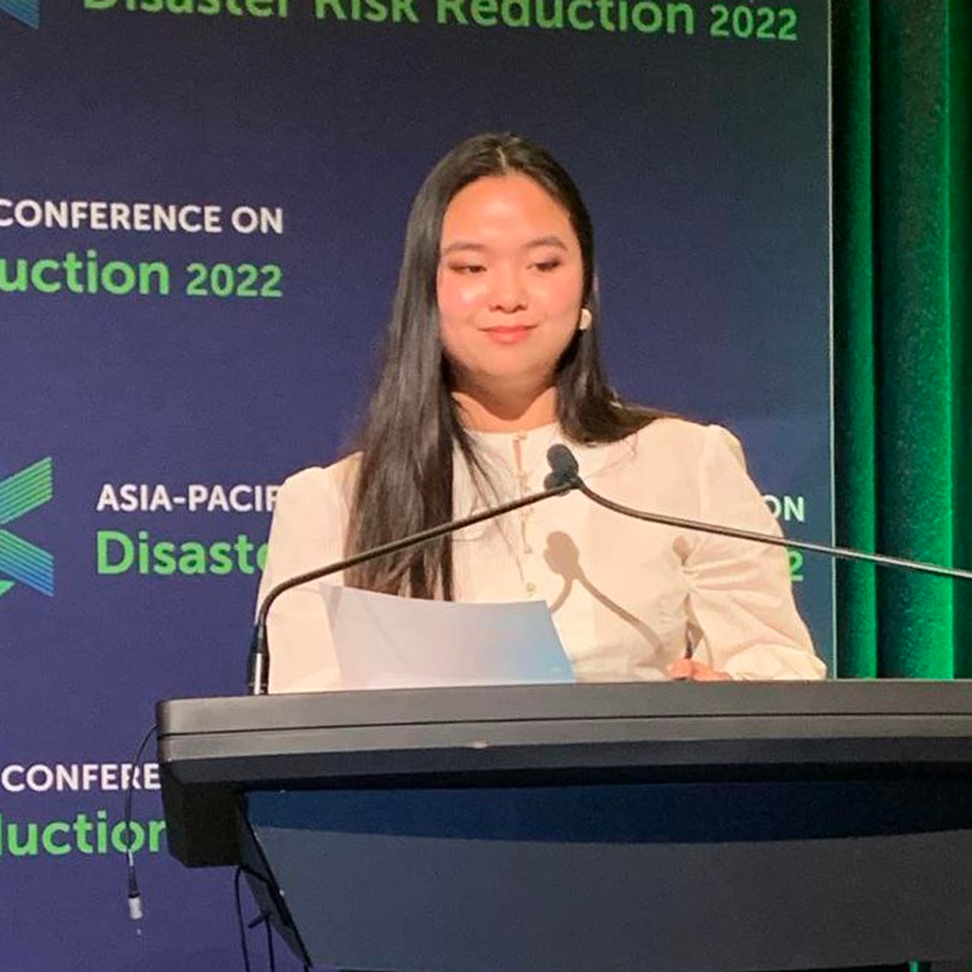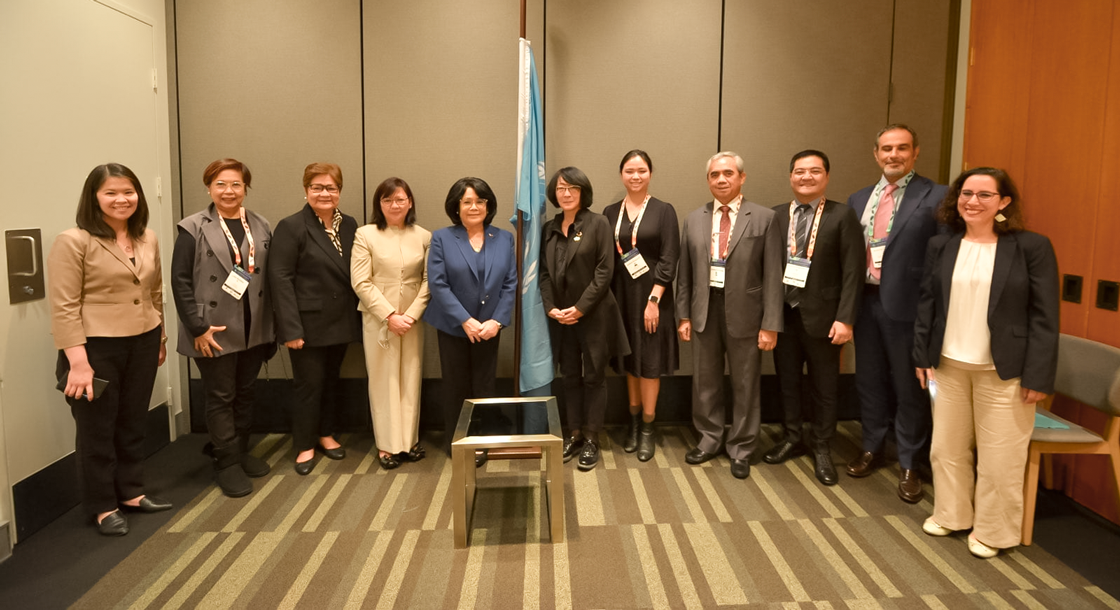SM Prime: Building disaster resilient communities
• 5 min. read
The Philippines, is a disaster-prone country. Hence, as good times can be as frequent as the bad and, as global warming and climate change make disasters more destructive and deadlier. Resilience, disaster risk reduction and sustainability have become part not just of the official vocabulary but also of SM Prime business speak.

In the recently concluded 2022 Asia-Pacific Ministerial Conference on Disaster Risk Reduction (APMCDRR) held in Brisbane, Australia on September 19-22, 2022, SM Prime joined the Philippine Government and other stakeholders across the Asia-Pacific to showcase and share experiences, action and innovation to help build a resilient future for the region.
Asia Pacific Ministerial Conference
The APMCDRR is the main regional platform in Asia-Pacific for promoting coordination and cooperation on disaster risk reduction (DRR) and the implementation of the Sendai Framework for Disaster Risk Reduction. The event was convened by the United Nations Office for Disaster Risk Reduction (UNDRR) and hosted by the Australian Government.
With the theme “From Crisis to Resilience: Transforming the Asia-Pacific Region’s Future through Disaster Risk Reduction” the meeting was the first APMCDRR regional gathering since the onset of the Covid-19 pandemic. It brought together UN Member States, intergovernmental organizations, international and national organizations and stakeholder groups including the private sector, to accelerate progress on DRR.

Among the dignitaries present were Ms. Mami Mizutori, Special Representative of the UN Secretary-General for Disaster Risk Reduction and Head of UNDRR; Marco Toscano-Rivalta, Chief , UNDRR Regional Office for Asia and the Pacific; Senator Murray Watt, Australian Minister for Emergency Management and head of the Australian delegation.

The Philippine delegation was headed by Secretary Maria Antonia Yulo-Loyzaga of the Department of Environment and Natural Resources (DENR) and Undersecretary Raymundo B. Ferrer, Administrator, Office of Civil Defense & Executive Director, National Disaster Risk Reduction and Management Council. Also present were Engr. Liza Silerio, Global Board Member of the UNDRR led Private Sector Alliance for Disaster Resilient Societies (ARISE) and ARISE Philippines Co-chair Vice Admiral Alexander Pama (Ret). They were joined by representatives from the government, NGOs, civil society, academe, and the private sector including members from ARISE-Philippines and National Resilience Council (NRC).
A systematic approach to risk governance
During the Ministerial Forum, Secretary Loyzaga delivered the Philippine Statement emphasized “Compound and cascading hazards and fragile systems urgently require fundamental shifts towards all-hazards, whole-of-society, transdisciplinary, and systems approaches to preventive risk governance that is inclusive, responsive, and adaptive.”
The Statement from the Private Sector was delivered by Ms. Jessica Bianca T. Sy on behalf of Mr. Hans Sy, Chairman of the Executive Committee of SM Prime and ARISE Philippines Co-chair. She said “SM Prime, as a responsible integrated property developer as well as all other private sectors, recognize our duty in reducing disaster risks to avert loss of lives, assets and livelihoods. We champion transformative and whole-of-society solutions to address challenges in alignment with the public sector while we harness the power of data and technological innovations using corporate resources and networks.”

Ms. Sy highlighted the significant results of Public – Private Partnerships (PPPs) in creating sustainable communities and making countries more resilient.
The importance of the whole-of-country efforts at disaster mitigation of the Philippines and other Asia-Pacific countries was underscored by SRSG Mami Mizutori, Head of UNDRR.

Mizutori said, “The global battle to reduce disaster losses by 2030 will be won or lost in Asia and the Pacific.”
The Philippines’ commitment to put DRRM to be a top national priority was emphasized in the Official Statement of the Mission of the Republic of the Philippines to the United Nations and Other International Organizations in Geneva as published in the website of the APMCDRR 2022.

Filipino Communities Towards sustainable Dev
Our vision of “safer, adaptive, and disaster resilient Filipino communities towards sustainable development” is aligned with the priorities, targets, and indicators of the Sendai Framework. Our plan and framework also recognize and establish the links between DRRM, climate change adaptation, sustainable development, and human security.
The statement also emphasized that the Philippines will continue to be a champion of disaster risk resilience in various multilateral fora, recognizing that the global community must work together as a coordinated whole in order to ensure that we are well prepared to deal with the challenge of our times.
For her part, Secretary Loyzaga, as a Panelist at the Plenary Session on Risk-Informed Investments and Scaling Up Financing for Disaster Risk Reduction, underscored that resilience is everyone’s business and highlighted the role of the private sector in ensuring that resilience is a core business value. She cited examples of corporations in the Philippines that have embedded resilience investments in their main operations and supply and value chains.
SM Prime and its SM Development Corporation (SMDC, the residential property development component of SM) recognize and fully accept their duties and responsibilities as private sector partners in the Philippines’ efforts at disaster risk reduction.
The companies’ long-term focus and commitment to disaster risk reduction are primarily manifested in sustainable and disaster-risk resilient features of the properties, in the culture of the people and leaders, and in processes implemented. Some of the companies’ responsible and adaptive approach to DRR were in its Public – Private Partnerships including the vaccination of nearly 11 million Filipinos in SM malls nationwide.
SM Prime and SMDC are members of the ARISE, a global network of 400+ member private sector entities that collaborate to implement the disaster risk reduction goals of the Sendai Framework.
Technology and Innovation for DRR
SM Prime co-chairs the National Resilience Council (NRC) in the Philippines. NRC, is a science and technology-based public-private partnership among government, academe, private sector and community organizations for the advancement of the Sendai Framework, Sustainable Development Goals, Paris Climate Agreement, New Urban Agenda and UNDRR’s Making Cities Resilient Campaign.
During the Joint Partner Event moderated by NRC Executive Director, Silvestre Barrameda, Jr. and organized by ARISE Philippines in partnership with Asian Institute of Management, NRC, UNICEF, International Finance Corporation and SMDC, ARISE Co-Chair Alexander Pama stressed the need to appreciate how technology and innovation can be the lynchpin in more effective DRR and resilience efforts by different sectors. “This is now an existential challenge that we cannot afford to shy away from. This will have to be a collective and shared responsibility and co-ownership of actions by all sectors of society where the private sector plays a significant and pivotal role. This can and should not only be in the context of the private sector’s perceived traditional role as donors but more importantly as partners and co-owners in practically most if not all disaster risk reduction and resilience efforts.”
SMDC Takes Urgency on DRR
SM Prime co-chairs the National Resilience Council (NRC) in the Philippines. NRC, is a science and technology-based public-private partnership among government, academe, private sector and community organizations for the advancement of the Sendai Framework, Sustainable Development Goals, Paris Climate Agreement, New Urban Agenda and UNDRR’s Making Cities Resilient Campaign.
In response, Ms. Jessica Sy, outlined how SM Prime and SMDC take on the sense of urgency for DRR by building smarter and beefing up developments against worsening disasters with the use of data and technological innovations.
SM Prime’s planners study data and observations about the natural hazards in sites chosen for development. Aside from the standard technical due diligence in site selection, planners use government agency data, such as HazardHunterPH for seismic, volcanic, and hydrometeorological hazards; Project NOAH (National Operational Assessment of Hazards) for flood, landslide and storm surge risks; and Philippine Institute of Volcanology and Seismology for earthquake and seismic occurrences.
The developments comply with global standards and guidelines on Performance-based Structural Design, Wind Tunnel Analytics and Building Information Modelling. Construction employs practices that reduce environmental impact and minimize material wastage, such as re-using and re-purposing construction materials. It also applies innovative designs and adaptations that minimize carbon footprint and improve solid waste management efficiency, energy and water efficiency and air conservation
SM Prime pursues the transformative vision of the UN 2030 Agenda for Sustainable Development Goals (SDGs) on providing safe, resilient and sustainable human habitats. It undertakes community initiatives that create a positive impact on the lives of residents and the broader community, supporting and empowering tenants and homeowners, including opening job markets for professionals and skilled workers; holding entrepreneurship classes to encourage home-based economic activities, and health and wellness clinics.
In the master-planning of development projects as sustainable communities, features are designed to maximize people-to-people, transportation and infrastructure connectivity for maximized positive human, social, economic and environmental impact.
For SMDC, “The Good Guys” is not just a smart, catchy slogan. It is rather a challenge to be faced and a standard to live up to.
This is most apparent in its commitment to be the developer of sustainable communities for more Filipinos. SMDC and SM Prime fully understand that sustainability and resiliency means being a reliable partner not just in good times, but during challenges, too.